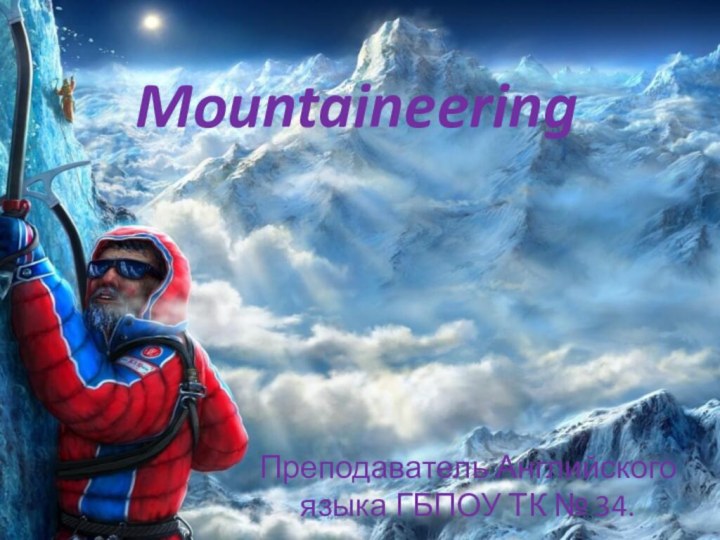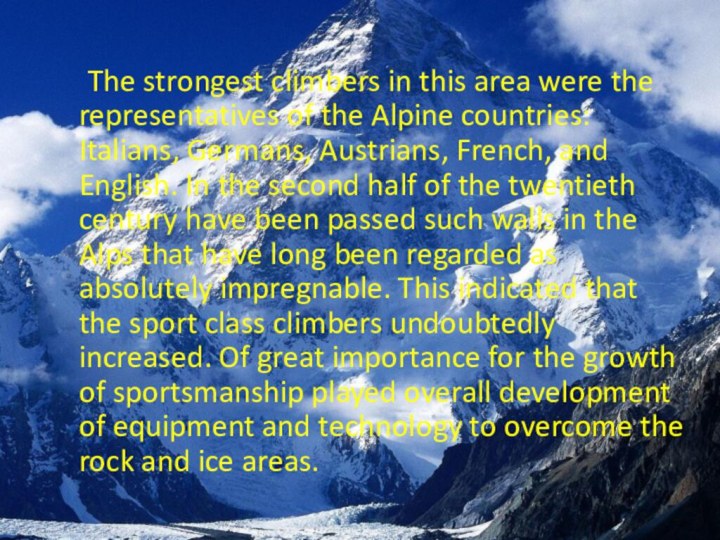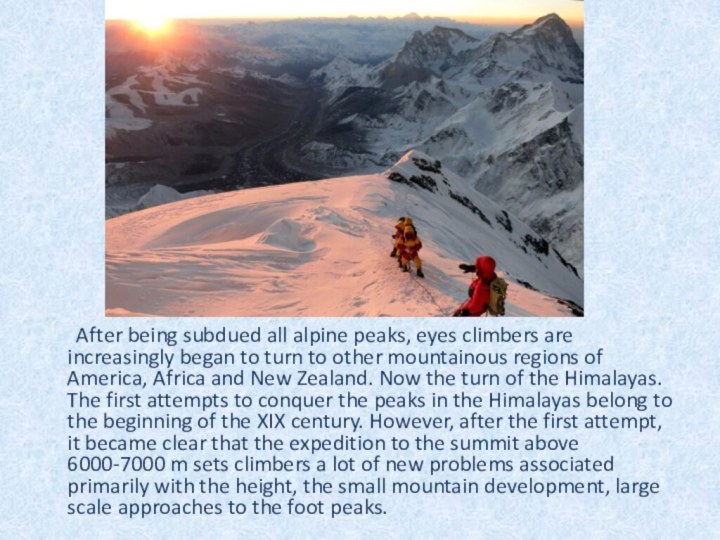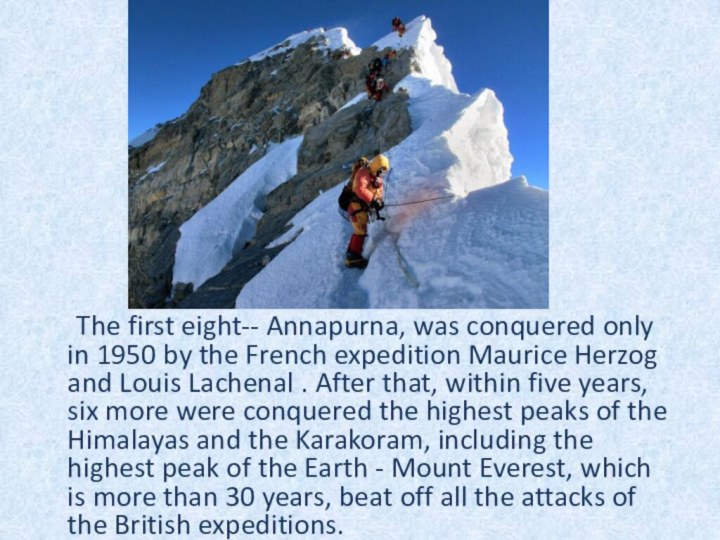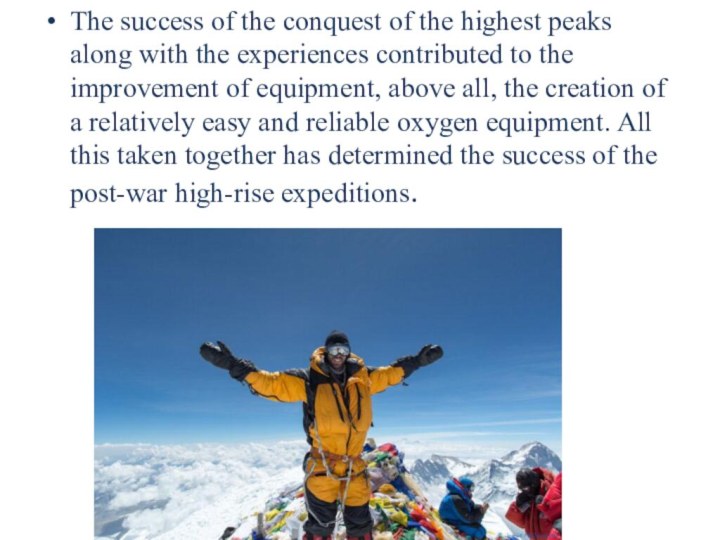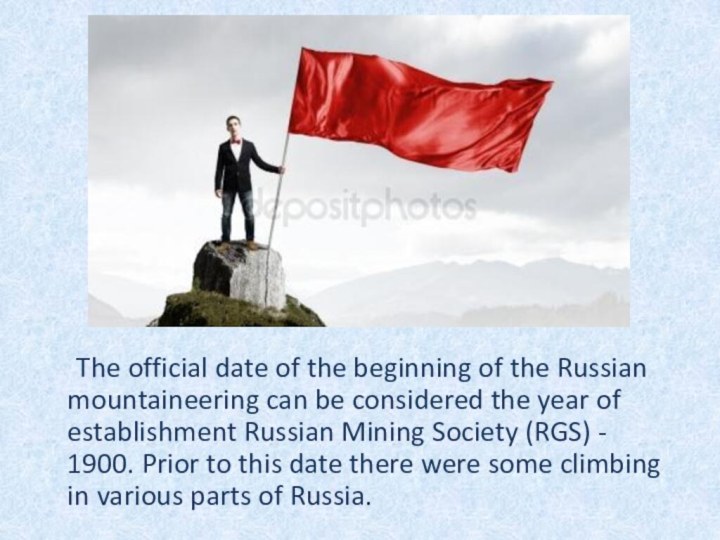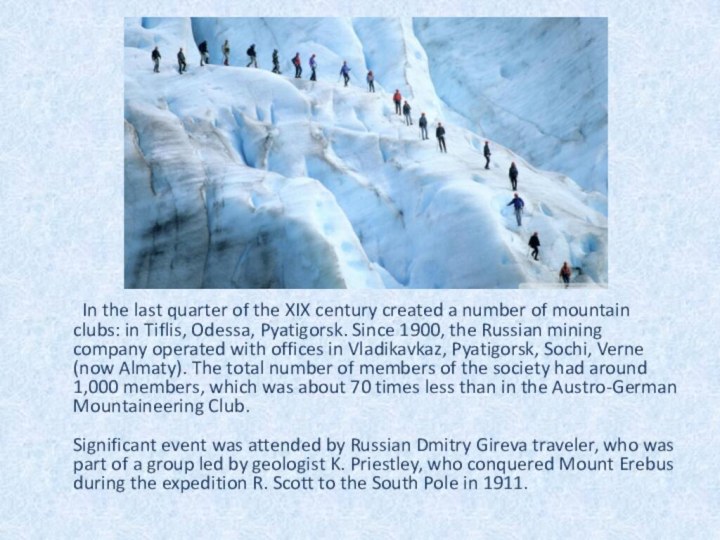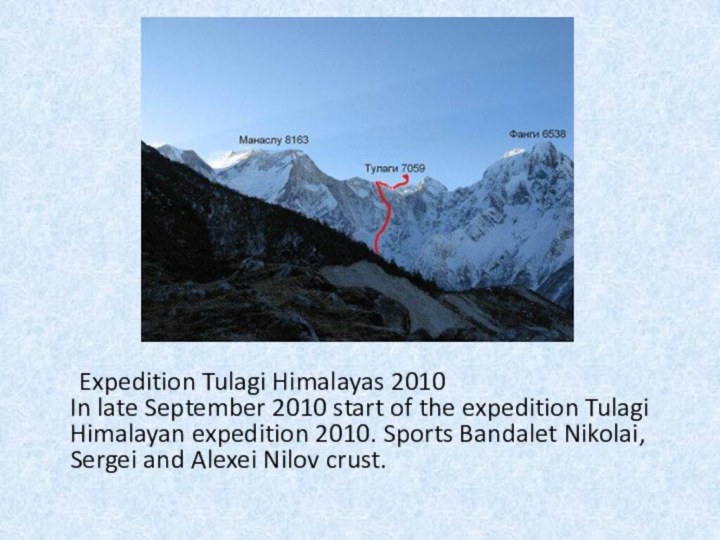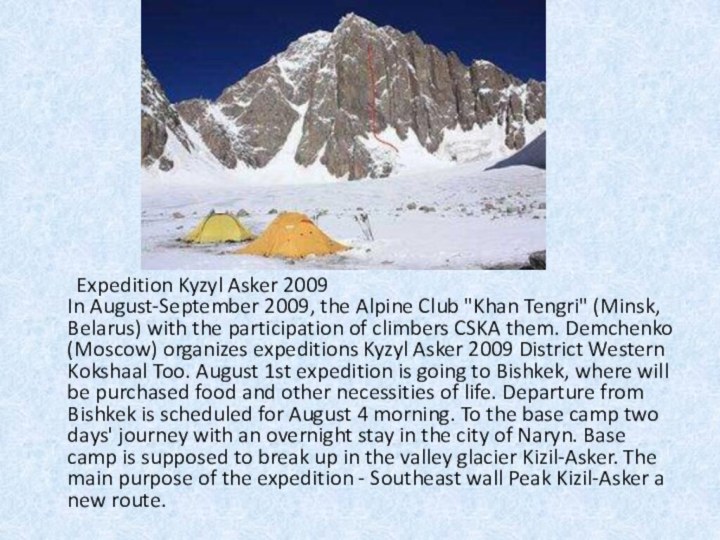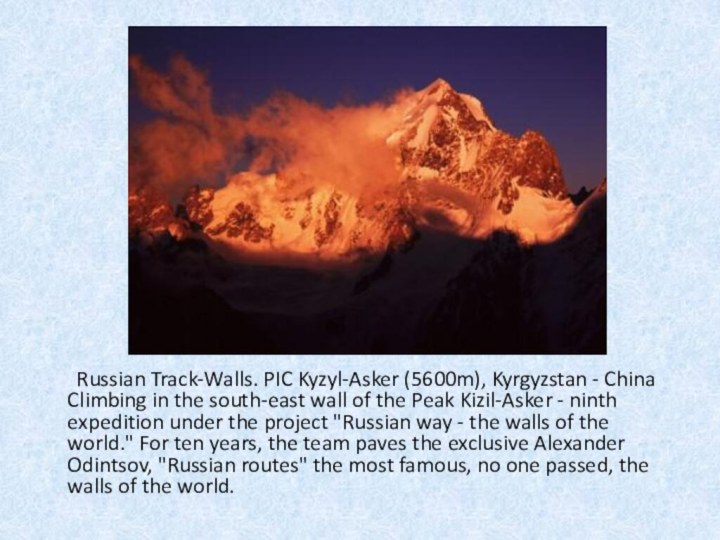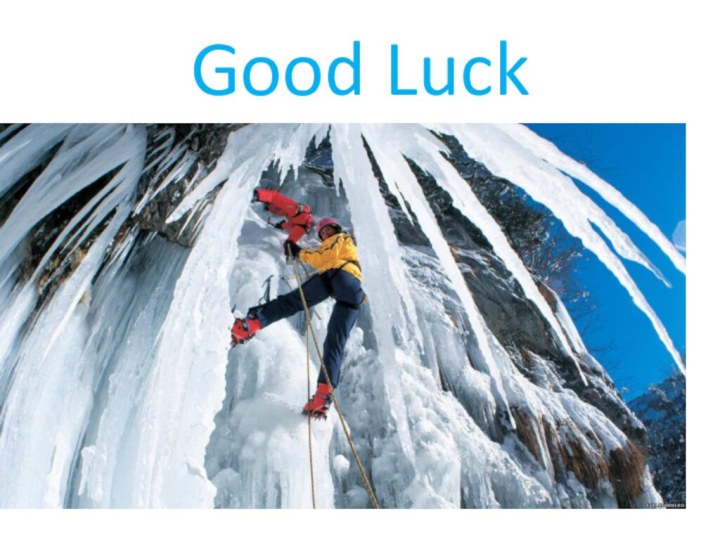Слайд 2
Originating in the Alps, climbing it is here
for the first time began to develop as a
sport. Pure sports climbing to the top began to take place in the Alps at the beginning of the XIX century. Particularly widespread development of sport climbing has received in the XX century.
Слайд 3
By the beginning of the XX century all
the peaks of the Alps were conquered, and climbers
began to search for new and more challenging routes for climbing. The more complex route there was the more athletic liked it. So gradually emerged grew and established the "wall" climbing on steep mountain walls.
Слайд 4
The strongest climbers in this area were the
representatives of the Alpine countries: Italians, Germans, Austrians, French,
and English. In the second half of the twentieth century have been passed such walls in the Alps that have long been regarded as absolutely impregnable. This indicated that the sport class climbers undoubtedly increased. Of great importance for the growth of sportsmanship played overall development of equipment and technology to overcome the rock and ice areas.
Слайд 5
There were lighter and stronger rope made of
synthetic fibers, lightweight cat, ice axes, jumpers and bookmarks,
duralumin ladder, sophisticated cuisine, new products, lightweight, warm clothes and shoes - all this greatly affected the qualitative growth of mountaineering.
Слайд 6
After being subdued all alpine peaks, eyes climbers
are increasingly began to turn to other mountainous regions
of America, Africa and New Zealand. Now the turn of the Himalayas.
The first attempts to conquer the peaks in the Himalayas belong to the beginning of the XIX century. However, after the first attempt, it became clear that the expedition to the summit above 6000-7000 m sets climbers a lot of new problems associated primarily with the height, the small mountain development, large scale approaches to the foot peaks.
Слайд 7
For many years, the Himalayas and Karakoram visited
various expeditions. British, since 1922, year after year, hard
climb Everest (Djomolungma), Germans - Nanga Parbat and Kanchenjunga, Italians and Americans - the peak K-2 (Chogori) in the Karakoram.
Слайд 8
The first eight-- Annapurna, was conquered only in
1950 by the French expedition Maurice Herzog and Louis
Lachenal . After that, within five years, six more were conquered the highest peaks of the Himalayas and the Karakoram, including the highest peak of the Earth - Mount Everest, which is more than 30 years, beat off all the attacks of the British expeditions.
Слайд 9
The success of the conquest of the highest
peaks along with the experiences contributed to the improvement
of equipment, above all, the creation of a relatively easy and reliable oxygen equipment. All this taken together has determined the success of the post-war high-rise expeditions.
Слайд 10
Mountaineering in pre-revolutionary Russia
Слайд 11
The official date of the beginning of the
Russian mountaineering can be considered the year of establishment
Russian Mining Society (RGS) - 1900. Prior to this date there were some climbing in various parts of Russia.
Слайд 12
In the last quarter of the XIX century
created a number of mountain clubs: in Tiflis, Odessa,
Pyatigorsk. Since 1900, the Russian mining company operated with offices in Vladikavkaz, Pyatigorsk, Sochi, Verne (now Almaty). The total number of members of the society had around 1,000 members, which was about 70 times less than in the Austro-German Mountaineering Club.
Significant event was attended by Russian Dmitry Gireva traveler, who was part of a group led by geologist K. Priestley, who conquered Mount Erebus during the expedition R. Scott to the South Pole in 1911.
Слайд 13
Expedition Tulagi Himalayas 2010
In late September 2010 start
of the expedition Tulagi Himalayan expedition 2010. Sports Bandalet
Nikolai, Sergei and Alexei Nilov crust.
Слайд 14
Gasherbrum II
December 27, 2010, Simone Moro, Denis Urubko
and Cory Richards went to Pakistan.
Objective - winter ascent
of Gasherbrum II.
Слайд 15
Expedition Kyzyl Asker 2009
In August-September 2009, the Alpine
Club "Khan Tengri" (Minsk, Belarus) with the participation of
climbers CSKA them. Demchenko (Moscow) organizes expeditions Kyzyl Asker 2009 District Western Kokshaal Too. August 1st expedition is going to Bishkek, where will be purchased food and other necessities of life. Departure from Bishkek is scheduled for August 4 morning. To the base camp two days' journey with an overnight stay in the city of Naryn. Base camp is supposed to break up in the valley glacier Kizil-Asker. The main purpose of the expedition - Southeast wall Peak Kizil-Asker a new route.
Слайд 16
Russian Track-Walls. PIC Kyzyl-Asker (5600m), Kyrgyzstan - China
Climbing
in the south-east wall of the Peak Kizil-Asker -
ninth expedition under the project "Russian way - the walls of the world." For ten years, the team paves the exclusive Alexander Odintsov, "Russian routes" the most famous, no one passed, the walls of the world.
Слайд 17
July 1 - July 23, 2006
Russian Extreme Project
on the northern wall of the Grandes Jorasses
Grandes Jorasses
is an iconic mountain climbing for the whole community. Its northern wall height of technically complex area is 1200 meters! Over the past hundred years, since its first conquest, it is a measure of sportsmanship for all climbers of the Old World. And also, one of the few mountains in the Alps on this scale, where has not been made any BASE jump !!!
And stayed Grandes Jorasses untouched for parachutists precisely because to achieve the jump point necessary to make difficult mountaineering.
